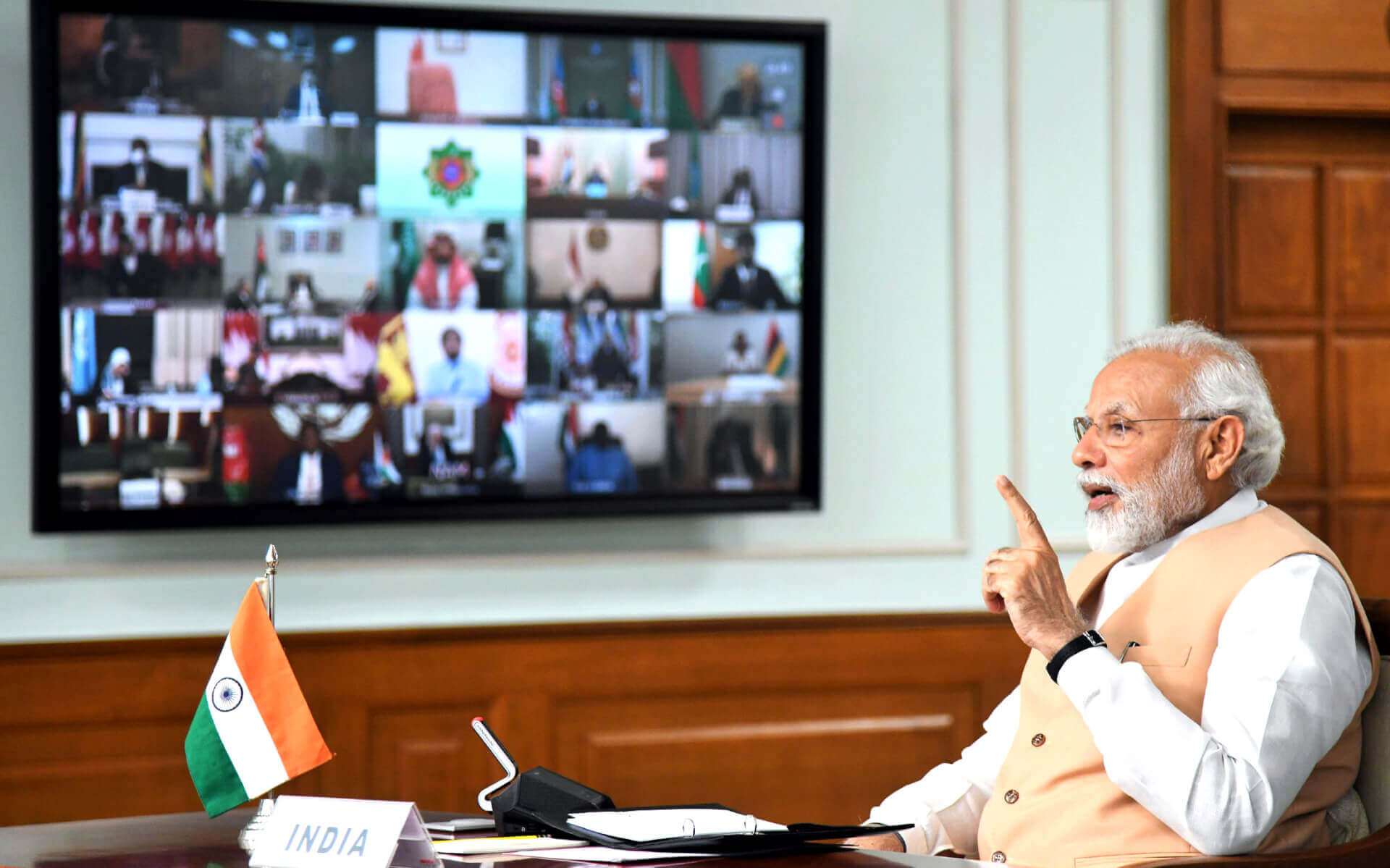On Monday, for the first time in his tenure, Indian Prime Minister Narendra Modi participated in a summit of the Non-Aligned Movement, a forum of 120 developing world states that are not formally aligned with or against any major power bloc. Modi joined the world leaders for an online summit convened by the NAM’s current chair, Azerbaijan.
The objective of the NAM summit was to promote international solidarity and mobilize global efforts to address the COVID-19 pandemic. It also commemorated the International Day of Multilateralism and Diplomacy for Peace.
In his address, Modi spoke about how the outbreak of the novel coronavirus has brought to light the limitations of the current world order and that the world would need a new wave of globalization based on fairness and equality. He further highlighted the need to “promote human welfare and not focus on economic growth alone”.
Without outrightly naming the country, Modi also made a dig at Pakistan, saying, “Even as the world fights COVID-19, some people are busy spreading other deadly viruses. Such as terrorism. Such as fake news, and doctored videos to divide communities and countries.” The Indian Ministry of External Affairs has largely used the term ‘fake’ to describe Twitter handles in the Arab world, after it was found that some of them, including the handle of an Omani princess, were created by Pakistanis with vested interests of destabilizing India and its relations with Gulf states.
Pakistan’s President Arif Alvi had spoken much earlier in the day, as per diplomatic protocol, and used his time at the summit to accuse the Indian administration of inciting hate against the country’s Muslims and denying them medical treatment during the pandemic. Alvi had claimed that there had been an “alarming increase in religious intolerance, hate speech, Islamophobia, xenophobia and other forms of discrimination” in India due to the coronavirus pandemic.
Alvi also raised the issue of Kashmir and said that the restrictions in the region have impaired its fight against the pandemic. The last time that Islamabad had raised this issue during the SAARC COVID-19 video conference, India issued a strong protest.
While the MEA report claims that Modi’s participation “underlined India’s longstanding commitment to the principles and values of NAM as one of its leading founding-members”, it is worth noting that the NAM did not feature at all in Modi’s foreign policy when he came to power in 2014. In 2016, the PM became the first-ever Indian head of government to skip the summit, sending vice-president Hamid Ansari to Venezuela in his stead. He also skipped the group’s next summit in 2019.
Under Modi’s rule, India’s foreign policy has been one of an open alignment with the US on the strategic and security fronts, such as the Quad and the Indo-Pacific Dialogues, thereby moving far away from NAM’s core tenets. Modi’s attitude towards the NAM was solidified when, at the 2019 Raisina Dialogue, former foreign secretary Vijay Gokhale said, “India has moved on from its non-aligned past. India is today an aligned state – but based on issues.”
With the pandemic proving to be a mounting challenge, perhaps Modi sensed an opportunity in this forum to fuel a conversation about how member countries should coordinate.
Image Source: IBG News
Narendra Modi Attends NAM Videoconference, Covertly Blasts Pakistan
May 6, 2020

